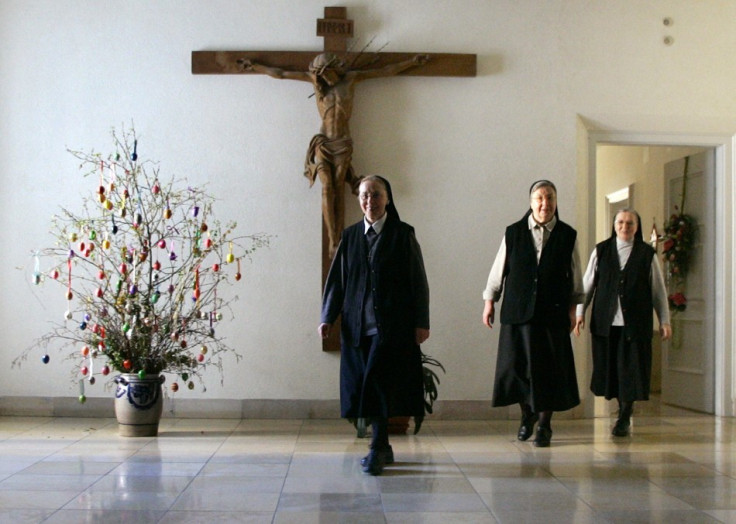Christians are 'not Persecuted in the UK', Says Report

Christians in the UK are not persecuted and anyone who suggests so is undermining the real repression they face elsewhere in the world, a group of parliamentarians has said.
They are not badly treated in Britain either, finds an all-party parliamentary group's report into the freedom of Christians in the country, called Clearing the Ground.
Christians in Parliament, comprised of MPs and Peers from across the political spectrum, launched the inquiry after a spate of high-profile court cases and media reports suggesting Christians are marginalised in the UK.
It was funded by The Evangelical Alliance, a group representing evangelical Christians.
"Despite the problems that have arisen in recent years and despite the way in which they have come to define Christian interaction with society, there are still broad freedoms for Christians to exercise their beliefs and contribute to society in the UK," said the report's summary.
"Christians should make the most of these freedoms and engage their faith fully and confidently.
"Being distinctively Christian, they must work for the good of society and towards a society that is truly respectful of different beliefs.
"Christians should encourage a confident pluralism that acknowledges disagreement and is not a cover for enforcing sameness under a cloak of diversity."
Recently Baroness Warsi, the Conservative Party chairwoman, hit out at the "militant secularisation" of Britain and called for Christianity to be put back at the heart of public life.
Critics said her words were dangerous and that she risks a "culture war" with secularists.
The latest report did note that Christians face problems in the UK.
It bemoaned the "religious illiteracy" of much of the population, who it said did not understand the cultural and historical ties between Christianity and British society.
"With a declining level of adherence to Christianity in the UK over the last century, it is perhaps not surprising that the public understanding of faith has reduced and we see in the actions of government, public bodies and employers an inadequate grasp and inability (or unwillingness) to accommodate belief," the report said.
"However, latterly it has become apparent that the demise of religion has been greatly overstated and that Christianity is still a significant factor in society."
It recommends public education to improve the situation.
There is also a problem with equality law, said the report, in that Christians' right to exercise and express religious beliefs are unequal with other rights.
"The Equality Act creates problems which are beginning to become apparent as cases are presented before the courts," said the report.
"Perhaps most significantly the law does not provide any guidance about how tensions between the equality strands should be managed... this tension is most clearly arising between the religion and belief strand and the sexual orientation strand.
"Critically, early indications from court judgments are that sexual orientation takes precedence and religious belief is required to adapt in the light of this.
"We see this as an unacceptable and unsustainable situation."
Gary Streeter, chairman of the committee and a Christian Conservative MP, said the law must respect religious beliefs.
"Of course, Christians should obey the law, but the law should reflect the positive contribution the Christian faith has made to the heritage of this country and also respect the sincerely held beliefs of mainstream Christians," he said.
© Copyright IBTimes 2025. All rights reserved.





















